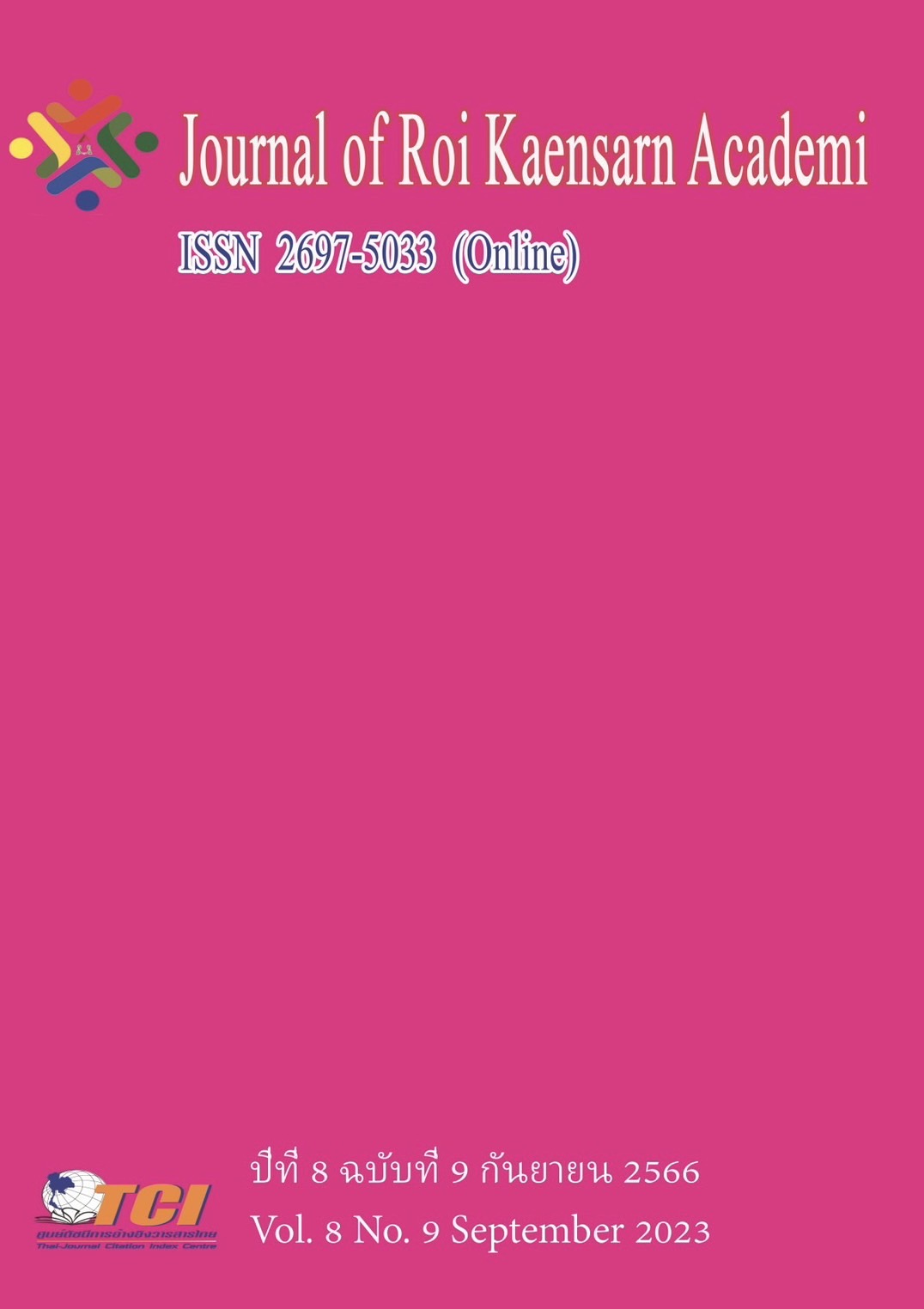The Impact of Immersive and Meaningful Experiences for Theatergoers
Main Article Content
บทคัดย่อ
In recent years, theater performing arts has increasingly become a standard product and an important attraction for cities. In the continuous iterative development of theater performing arts, from the initial mirror-frame stage performance, to today's sought-after immersive performing arts, the performance mode and viewing methods continue to innovate. In particular, new audio-visual, artificial intelligence, high simulation, mixed reality, human-machine interaction and other new technology implantation, so that theater performing arts show high investment, large production, super shocking development trend, technology cult characteristics are obvious. Therefore, in the iterative upgrading of theater performing arts, the design of embodied experience is regarded by the industry as a winning formula. However, the survey found that many immersive theater performing arts market recognition is not high, the audience on the high specification hardware and technology configuration response is not enthusiastic, by the audience evaluation as "visual carpet bombing and four sides of the emotional siege, no depth of aftertaste". This phenomenon has caused people to think, theater performing arts really only care about the immersion experience? What kind of satisfaction can the immersion experience in theater performing arts bring to the audience? What is the key to audience satisfaction in theater performance? Does theater performing arts audience satisfaction affect theater audience satisfaction and loyalty? Without a deeper understanding of this, investors will not be able to realize their investments from the design of immersive theater performing arts experiences, and their efforts to leverage new technological innovations in audience experience will have little effect. Through combing the research results related to theater performance, theater experience, immersive experience, audience satisfaction and loyalty, we found that: the research related to theater performance mainly focuses on the elements of audience embodied experience and sensory stimulation, and the immersive experience brought by the combination of these elements for the audience, and few scholars have focused on the conceptual connotation of meaningful experience based on cognitive input in theater performance and its impact on audience satisfaction. Existing theater experience-related research has richly explored the characteristics and connotations of theater experience, but lacks in-depth analysis of the connotations and characteristics of theater experience in different theater scenes; in immersion experience-related research, although a great deal of research has been conducted around immersion experience in the field of environment and theater, few have paid attention to the immersion experience of theater performing arts audience and its impact on theater performing arts audience satisfaction and theater audience satisfaction and loyalty; in audience satisfaction and loyalty-related studies, there is a lack of analysis of the impact of audience experience on audience satisfaction from the perspective of the overall state and depth of audience experience, and a failure to conduct a systematic comparative analysis of the effect of the two dimensions of emotional response and cognitive evaluation on audience satisfaction, although a large number of studies have confirmed the positive relationship between audience satisfaction and audience loyalty, but Few studies have analyzed in depth whether and how audience satisfaction with theater activities, theater programs or the theater itself affects their satisfaction and loyalty to the theater, in terms of attitude migration and generalization after audience satisfaction, and more specifically.
Article Details
เอกสารอ้างอิง
Aaker D A, Keller K L. (1990). Consumer evaluation of brand extension. Journal of Marketing. 54 (1), 27-41.
Chaiken S, Trope Y. (1999). Dual-Process Theories in Social Psychology. New York: Guilford Press.
Gan Lu,Xie Wen,Jia Xiaoxin,et al. (2019). Can virtual reality experiences replace live theater? An experimental analysis of scenarios based on the Whispering Peaks virtual reality experience. Journal of theater. 34 (8), 87-96.
Lakoff G. (1987). Women, Fire, and Dangerous Things: What Categories Reveal about the Mind. Chicago: University of Chicago Press.
Liu Yan, Pu Bo, (2016). Guan Zhenzhong. The influence of online experience of theater consumers on rebooking from the perspective of immersion theory. Journal of theater. 31(11), 85-95.

